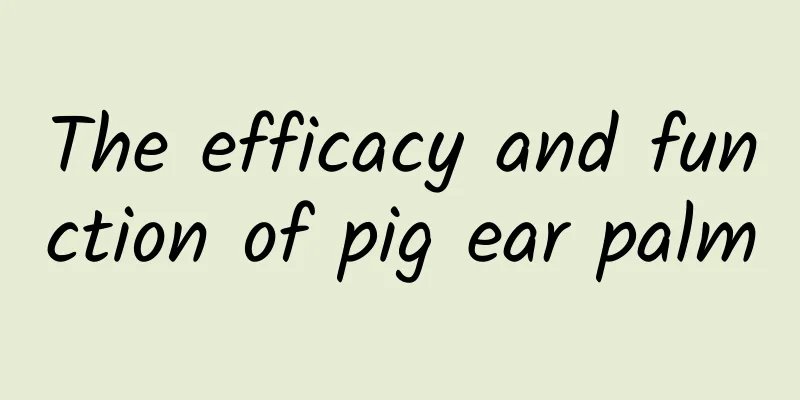Dosage of Burdock Seed

|
In rainy seasons, people often feel heavy body and weak limbs, which is a major manifestation of moisture accumulation. At this time, everyone should eat more foods that help remove moisture, among which burdock has a significant effect in removing moisture. In addition to removing dampness, burdock also has the wonderful effects of treating constipation, resolving phlegm and relieving cough, and delaying aging. But when using burdock, what is the specific dosage? The efficacy and function of burdock Dispel wind-heat; clear lungs and relieve rash; relieve sore throat and resolve lumps; detoxify and reduce swelling Dosage and Usage of Burdock Seed For internal use: decoction, 5-10g; or in powder form. For external use: take appropriate amount, decoct in water and gargle. Taboos of Burdock This product can lubricate the intestines, so people with qi deficiency and loose stools should not use it. "Bencao Jingshu": It is only suitable for patients with smallpox who have symptoms of blood heat and constipation. If the patient has qi deficiency, pale stool, spontaneous bowel movements or diarrhea, be careful not to take it. Measles does not contraindicate diarrhea, so there is no harm in using it. If the carbuncle has already ulcerated, it is not suitable to take the medicine unless there is constipation. Burdock seed recipe 1. Burdock soup (from "Zhengzhi Zhunsheng·Pediatrics") is used to treat colds in children, fever and irritability, nasal congestion and asthma, phlegm and cough, and crying, as well as red and purple sores, erysipelas, and sore throat. 2. Niu Di Gan Jue Tang (from "Surgery Authentic") is used to treat the chin poison and external evil have been eliminated, the ear and neck are swollen, slightly hot but not red, and painful. 3. Gardenia Liver-Clearing Decoction (from "Complete Record of Medical Affairs·Tou Men") is used to treat Shaoyang meridian deficiency, liver fire and wind-heat attacking the temples, which cause pain in the neck, chest, breasts, temples, etc., or severe chills and heat, chest fullness, bitter mouth and dry tongue. 4. Qi Guan San (Pu Ji Fang), used to treat wind-heat attacking the upper part of the body, causing congestion, swelling and pain. 5. Niu Di Jie Ji Tang (from "Yue Ke Xin De Ji") is used to treat wind-heat in the head and face, or phlegm and poison in the neck, and wind-heat toothache. 6. A prescription for treating headache (from "Fang Mai Zheng Zong"), used to treat headache that affects the eyes and blurred vision. 7. Prescription for treating wind-heat urticaria (Essential Prescriptions for Health Preservation). 8. Prescription for treating throat congestion (Guangji Prescription). 9. Prescription for treating throat and diaphragm discomfort (Bencao Yanyi). |
<<: What are the side effects of Astragalus?
>>: What is the ideal blood pressure range?
Recommend
Teddy bear travels 10,000 meters in the sky! Looks high? But it’s not in space!
In recent days, a video of several college studen...
How to use saffron
Saffron is a fruit and also a medicinal herb. It ...
Dosage of Angelica dahurica
Many names of Chinese medicinal herbs in traditio...
Have you ever taken a high-speed train with a four-digit number starting with 4 or 9?
During the Spring Festival travel rush, we often ...
A painter who can't do gymnastics is not a good neurologist
There was a scientist who was a gymnast, a neurol...
The efficacy and function of wormwood
Many people choose wormwood because of its high-v...
Bad quality meat? Unhygienic? Is this takeaway edible? 24 takeaway dishes reviewed
The New Year holiday is over and there are no eld...
The efficacy and function of yellow gardenia fruit
Yellow gardenia is also known as mountain gardeni...
Raw peanuts VS cooked peanuts, which one is more nutritious?
Peanuts are a popular nut. No matter it is a snac...
The world's first picture! "Omicron" VS "Delta", how big is the threat?
Strictly prevent the spread of the new coronaviru...
Winter is dry, and your nose is scabbing and bleeding again? Don't panic, experts will teach you how to deal with it
In winter, the climate often becomes dry and cold...
Popular Science Illustrations: Unlocking the Secrets of China's High-speed Rail Leading the World
...
Should wisdom teeth be removed? If it doesn't hurt, you can just leave it alone? Here are all the answers about wisdom teeth
Most people don’t know they have wisdom teeth. So...
Platinum: Behind my good looks, I am also quite capable!
Platinum, element number 78 in the periodic table...









